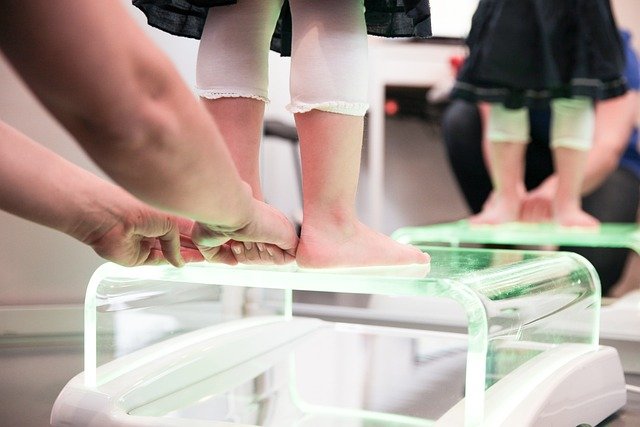Sperm Donation Explained: A Safe, Confidential Path to Parenthood
Sperm donation offers a viable solution for individuals and couples facing fertility challenges. This process enables those who cannot conceive naturally to pursue their dreams of parenthood through carefully screened donor samples. With modern medical advances and comprehensive support systems, sperm donation has become increasingly accessible while maintaining high standards of safety, privacy, and ethical practice.

Sperm donation represents a critical reproductive option for many individuals and couples on their journey to parenthood. Whether due to male infertility, single women seeking to become mothers, or same-sex female couples wanting to start a family, this process provides a pathway to conception that might otherwise be unavailable. Modern sperm donation combines medical expertise with ethical considerations, creating a structured approach that respects the needs of donors, recipients, and potential children while maintaining appropriate confidentiality and safety standards.
Understanding the Sperm Donation Process
The journey of sperm donation begins with careful screening of potential donors. Clinic A: Pioneering Sperm Donation facilities conduct comprehensive evaluations that include medical history reviews, genetic testing, and screening for infectious diseases. Donors typically undergo multiple rounds of testing over several months to ensure sample quality and donor health. Once accepted, donors provide samples that are frozen and quarantined for a mandatory period—usually six months—before being retested and released for use.
Recipients can select donors based on various characteristics including physical traits, educational background, medical history, and sometimes even personal essays or voice recordings, depending on the facility’s policies. The actual insemination can occur through various methods, with intrauterine insemination (IUI) being the most common, though in vitro fertilization (IVF) with donor sperm is also an option for those with additional fertility challenges.
Legal and Ethical Considerations in Donor Programs
The legal landscape surrounding sperm donation varies by location, making it essential for all parties to understand their rights and responsibilities. Clinic E: Ethical and Transparent Practices emphasize clear communication about parental rights, with donors typically relinquishing all legal claims to any resulting children. Recipients sign detailed consent forms acknowledging their legal status as parents.
Ethical considerations include questions of donor anonymity versus identity disclosure, with many countries moving toward systems that allow children to access identifying information about donors once they reach adulthood. This reflects growing recognition of the importance of genetic identity to many donor-conceived individuals. Other ethical discussions center around appropriate compensation for donors, limits on the number of families that can use a single donor, and ensuring informed consent from all parties.
Medical Screening and Quality Assurance
Quality control measures are paramount in sperm donation programs. Clinic B: Excellence in Donor Care implements rigorous screening protocols that exceed regulatory requirements. Potential donors undergo extensive testing for genetic disorders, including recessive conditions that might not affect them but could impact offspring. Infectious disease testing includes HIV, hepatitis, cytomegalovirus, and other sexually transmitted infections.
Beyond medical screening, psychological evaluations help ensure donors understand the long-term implications of their decision. Sperm samples themselves undergo analysis for count, motility, morphology, and survival after freezing and thawing. These comprehensive measures help maximize the chances of successful conception while minimizing health risks to recipients and potential children.
Technological Innovations in Fertility Services
Advances in reproductive technology continue to improve sperm donation outcomes. Clinic C: Innovating the Sperm Donation Process utilizes cutting-edge techniques such as computer-assisted semen analysis (CASA), which provides detailed assessment of sperm quality beyond what traditional microscopy can detect. Sperm washing procedures have also evolved, allowing for better separation of healthy sperm from seminal fluid.
Cryopreservation methods have significantly improved, with vitrification techniques preserving sperm quality better than older slow-freezing methods. Additionally, genetic testing capabilities now allow for expanded carrier screening, giving recipients more information about potential genetic compatibility with donors. These technological advances help increase success rates while providing greater peace of mind to recipients.
Support Services for Donors and Recipients
The emotional aspects of sperm donation receive increasing attention in modern fertility practices. Clinic D: Comprehensive and Supportive Services recognizes that both donors and recipients benefit from psychological support throughout the process. Counseling services help recipients navigate complex feelings about using donor gametes and prepare for future discussions with their children about genetic origins.
Support groups connect recipients with others on similar journeys, providing valuable community resources and shared experiences. For donors, counseling ensures they’ve considered the long-term implications of their decision, including the possibility of future contact with donor-conceived offspring in open-identity programs. This holistic approach acknowledges that sperm donation is not merely a medical procedure but a profoundly human experience with lifelong implications.
Cost Considerations and Provider Comparison
Understanding the financial aspects of sperm donation helps potential recipients plan effectively. Costs vary significantly depending on the clinic, services required, and whether additional fertility treatments are needed.
| Provider | Basic Services | Cost Range | Additional Features |
|---|---|---|---|
| Clinic A | Donor sperm, basic screening | $900-$1,200 per vial | Extended genetic testing, identity-release donors |
| Clinic B | Donor sperm, comprehensive screening | $1,000-$1,500 per vial | Lifetime photos, donor essays, audio interviews |
| Clinic C | Donor sperm, premium package | $1,200-$1,800 per vial | Advanced genetic screening, exclusive donor pool |
| Clinic D | Donor sperm with IUI procedure | $1,500-$4,000 per cycle | Counseling services, pregnancy guarantee programs |
| Clinic E | Donor sperm with IVF option | $12,000-$20,000 per cycle | Embryo genetic testing, storage options |
Prices, rates, or cost estimates mentioned in this article are based on the latest available information but may change over time. Independent research is advised before making financial decisions.
Most recipients require multiple vials and possibly multiple insemination attempts, significantly affecting total costs. Insurance coverage varies widely, with many plans providing limited or no coverage for donor sperm services. Some clinics offer package deals or shared risk programs that can make costs more predictable. Additional expenses may include storage fees for unused samples, shipping costs for samples from external banks, and fees for additional screening or selection features.
Sperm donation represents a valuable path to parenthood for many individuals and couples facing fertility challenges. With careful consideration of medical, ethical, legal, and financial factors, recipients can navigate this process successfully. Modern practices emphasize comprehensive screening, ethical transparency, and support services that acknowledge the profound significance of assisted reproduction. As technology and societal attitudes continue to evolve, sperm donation remains a vital reproductive option that helps build families while respecting the dignity and needs of all involved parties.
This article is for informational purposes only and should not be considered medical advice. Please consult a qualified healthcare professional for personalized guidance and treatment.




